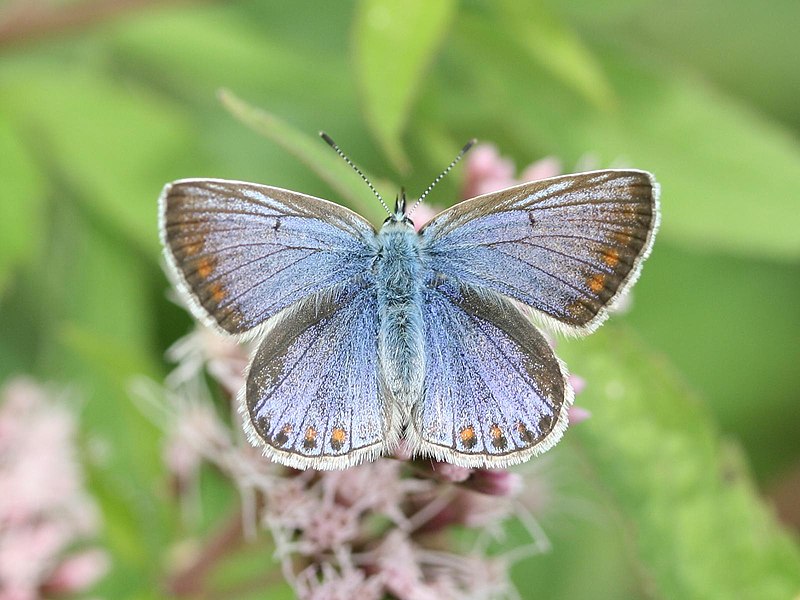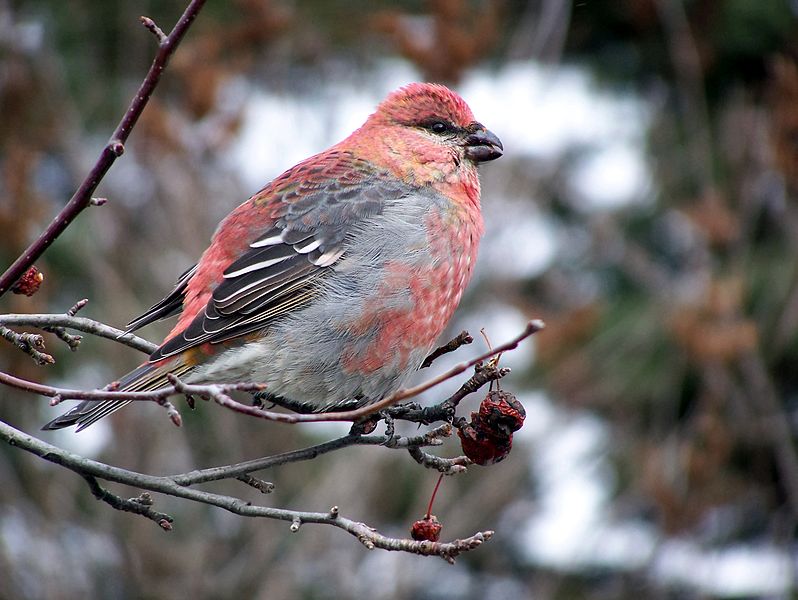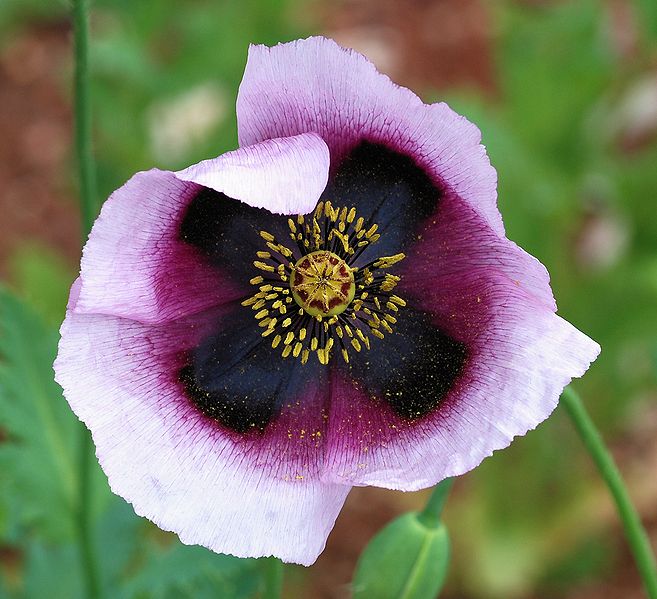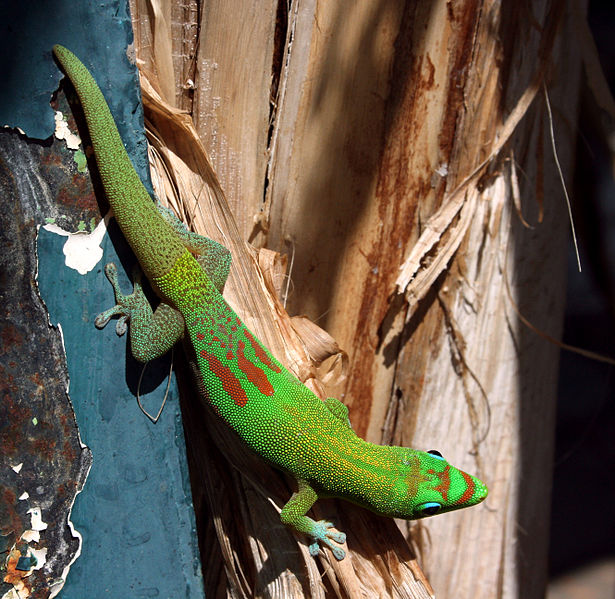.

Flat-headed Rock Agama (Agama mwanzae), Serengeti National Park, Tanzania: photo by Christian Mehlführer, 2006
Out of his absorption in the works of painters the need grew in Goethe to penetrate into the laws to which the phenomena of the sense of sight are subject.

Golden Conure (Guarouba guarouba), Gramado Zoo, southern Brazil: photo by Ironman br, 2010
Every painting presented him with riddles.
How does chiaroscuro relate to the colors? In what relationships do the individual colors stand to one another? Why does yellow give a happy mood, blue a serious one?
Out of the Newtonian theory of color there was no way of gaining a viewpoint from which these mysteries could be revealed. This view traces all colors back to light, arranges them sequentially side by side, and says nothing about their relationships to the dark, and also nothing about their living connections to each other.

Polyommatus icarus: photo by Kristian Peters, 2007
From insights gained along his own path, Goethe was able to solve the riddles which art had posed him.

Pine Grosbeak (Pinicola enucleator): photo by 7242scott/Papa Lima Whiskey, 2007
Yellow must possess a happy, cheerful, mildly stimulating character, for it is the color closest to light. It arises through the slightest toning down of the light.

Blue points to the dark which works in it. Therefore it gives a feeling of cold just as “it also reminds one of shadows.”
Reddish yellow arises through the intensification of yellow toward the dark pole. Through this intensification its energy grows. The happy, cheerful feeling passes over into the blissful. As soon as the intensification goes still further, from reddish yellow into yellowish red, the happy, blissful feeling transforms itself into the impression of something forceful.
Inachis io on Arctium tomentosum seen in meadow close to Uggleviksskällan, Lill-Jansskogen, Sweden: photo by Korall, 2009
Violet is blue which is striving toward the bright.

Opium poppy (Papaver) flower, showing bud and fruit in background: photo by Alvesgaspar, 2010
Through this the restfulness and cold of blue become restlessness. In bluish red this restlessness experiences a further increase.
Pure red stands in the middle between yellowish red and bluish red. The storminess of the yellow appears lessened, the languid restfulness of the blue enlivens itself. The red gives the impression of ideal contentment, of the equalizing of opposites.

European Peacock (Inachis io): photo by Michael Apel, 2007
A feeling of contentment also arises through green, which is a mixture of yellow and blue. But because here the cheerfulness of the yellow is not intensified, and the restfulness of the blue is not disturbed by a reddish tone, the contentment will be a purer one than that which red brings forth.
Text from Goethe's World View: Chapter III: The Phenomena of the World of Colours: Rudolf Steiner, 1897








15 comments:
I believe one of the first rules of painting is to understand that each colour IS alive. To build a painting is to create an ecosystem, whether simple and cellular or a lush pasture, balance and chaos wrapped in composition are the key. I'm not convinced however far removed from nature a painting may appear, or even if the painter has no knowledge of eurythmy or phenomenological aesthetics, that it isn't a reaction to nature - a sensory experience provoked in the broadest sense by nature, both for the painter and the viewer.
(maybe:-))
The Flat-headed Rock Agama -- its flat head wasn't exactly the first thing I noticed -- is a reptile to remember. Shouldn't reptiles be hiding? I've never read what Goethe wrote about colour, I'll have to take a look.
Yes. I love the poetic "method". (No offense meant to Newton.) Nothing on earth could be more welcome, reassuring or convincing at the end of this particular week than this post.
“Every painting presented him with riddles…..From insights gained along his own path, Goethe was able to solve the riddles which art had posed him”.
So thank you, Tom, very much. Each of these creatures now lives inside me and my family. The Star-Headed Finch just blows my mind. I've been a bit obsessed this week about Gulf of Mexico-related matters, trying to research chain of causation and chain of command questions. My mini-goal, which I know isn't a solution, is based on the idea that figuring out the proximate, causal, culpable relations you can prove and establishing them legally, would make a reoccurrence less likely, but I’m very much aware that ultimately, I’m applying comic book logic to a more profound set of circumstances and implications. (By the way, trying to determine and establish these relations is difficult. Heraclitus said, in a translation I like, "nature loves to hide", but this isn't nature hiding. It's people hiding, dissembling and burying.)
Steiner’s description of Goethe’s dilemma, the riddles and the way forward in finding the solution is phrased beautifully. I agree entirely with Leigh’s remarks and think that AJP and BTP are both very good guides, for which I’m grateful.
Leigh,
That's beautifully said -- "an ecosystem" indeed -- as well as beautifully put into practise in your work (which I hope will now be looked at by those who have not been enjoying it already).
AJP,
Yes, and there is also the Pointy-Headed variation subspecies. Rarely seen because they are hiding their heads.
Goethe's Colour Wheel, and a bit more slithering-about on the subject of his Theory of Colours, is hidden here.
Curtis,
It's been that kind of week here too, with the great difference that unlike you I can not say I have achieved anything at all. Frustrating as it may be, your endeavour to introduce a legal/ethical conscience (not too much of an oxymoron I hope) into those murky depths is to be applauded. Though I would guess the activity must feel a bit like trying to drill your way to China with the corkscrew on a Swiss Army Knife.
You have put me in mind of Hölderlin's line: "The calculable law of tragedy".
Hölderlin's line is great and memorable. Oddly, it reminds me of something more mundane I once said when a company I used to work for (a division of a major movie studio), following a change in management, changed some its established legal department practices (intended to ensure that film credits were correctly recorded and printed in advertising and packaging) from sound and correct ones to practically no practices at all in order to save money. “Sloppiness elevated to the level of theory”, I said. Fortunately, I said it only to the right people and was able to keep my job. I think what set me off was when Julius Caesar’s name (as in “Rex Harrison as……….”) was misspelled on the video packaging of Cleopatra. There has been some good journalism regarding the Gulf of Mexico disaster, mainly emanating from Pro Publica, as well as some helpful information disseminated by the Defenders of Wildlife, the Center for Biological Diversity and Democracy Now. But even these are disturbingly and relatively scant in scope and detail, and it seems clear that the wagons have been circled and the system is protecting itself, aided and abetted, unfortunately, by a mostly compliant media committed to writing stories about the president’s “mood” and allowing statements like one I heard yesterday on television from a senior administration official to the effect of “very soon the Gulf of Mexico will come back, better than ever”) to go unchallenged.
Great pictures and great idea. Who would think that there are so many creatures or wild flowers that are this beautiful.
Curtis,
Rex Harrison as...Jewels Seizure?
"Better than ever" is an interesting proposition. Do you suppose it's meant to signify better than before the oil spill, or better than before human habitation?
In either case it's patently ridiculous, of course, unless "better" is construed to mean "better for commercial exploitation"? (In which case, the second possibility, better than before human habitation, would have to be ruled out, I guess.)
For instance, there is the factor of disaster management employment, which would create jobs for many; the longer and more extensive the disaster, the more jobs, etc. But no, that can't be what was meant.
Beaches, margaritas, pleasure boats, snorkeling, tourism, is that it? More and better of all that than ever?
Better for pelicans and egrets?
Better fishing? For what? oil soaked carcasses?
The whole business seems to equal despair.
You might have expected that the administration official's assertion would at least have merited a follow-up question from the reporter (most journalists I have known have no trouble whatsoever asking questions, whether pertinent or impertinent), but the statement was allowed just to sit out there, absurd and offensive as it was.
And yes, that Rex Harrison and that Jewels Seizure. I'd forgotten that he was actually nominated for a Best Actor Oscar for the picture, which isn't absurd, but is kind of weird. It's a dull film. Later on during that same job, I encountered Sir Rex's aura again in the context of a "size, prominence and placement" issue involving the use of his image as Henry Higgins on a video package. The rules of professional responsibility prohibit me from discussing the details, but trying to track down Lady Harrison for permissions (Rex had passed on by that time) while she continually circumnavigated the globe on luxury steamships, while simultaneously dealing with the estate's octogenarian, Cerberus-like lawyer in NYC was one of my life's greater challenges during my 1990s.
You’re exactly right: The whole business seems to equal despair.
Curtis,
Rex, looking as though a Jewel Seizure might be in the cards at any moment, is pictured lurking in the shadows behind Lili Palmer here.
In the comments there's a very interesting four-part Dick Cavett interview with Lili; toward the end of it we hear a wee bit about Rex. (To whom, of course, she was for some time married.)
Journalistic Siberia is populated with askers of tough followup questions.
(Jessica Mitford's rule for interviewing -- she used this on all those undertakers -- was start with Kind questions, hold the Cruel ones until things have warmed up a bit... though warming and undertakers may revolt against being fit in the same sentence.)
This post is wow!!ly beautiful. Though I'm afraid even Goethe won't persuade me out of my aversion to bright purple.
Regarding the oil disaster, I would apologise for the appalling BP if I felt them to be British. The company re-branded itself as 'BP' some years ago, evidently feeling that being a global acronym was more its future role than being anything British or limited to petroleum; a fact that President Obama steadfastly ignores.
But it has behaved abominably throughout, starting with browbeating the men rescued off the exploding rig into signing statements that there had been no negligence. They had to sign before they were allowed to contact their families to say they were still alive.
More oil spillages seem to happen in the Atlantic, we've had some bad ones in the past, and the wildlife does eventually recover. 'Better than ever' sounds like a developer talking, though.
Tom,
Beautiful to read/see these words/pictures (and follow comments that they've inspired (yes, what's the story behind British Petroleum mutation into BP? ? ?). Here meanwhile a remark on color from LW -- "To what extent can we compare black and white to yellow, red and blue, and to what extent can't we?"
Tom:
Oddly, what struck me in Goethe's words was at once the strong assignment of meaning to each, quickly followed by their relativity when mixed.
And, like the photo representations themselves, I love that.
Made me think of all of the spectrum humans can't see.
Don
Zeph,
Glad to have heard from you on this, we had wondered to exactly what extent you were personally directing BP operations these days.
[INTERNET READERS: WARNING: JOKE ADVISORY]
About the royal colour of kings... let me assure you I am not trying to start a Mauvement.
Steve,
Wittgenstein thought Goethe was all wrong about colour.
Subsequent work in physics has suggested Wittgenstein should stand corrected by the Master.
Don,
The Goethe correlation of feeling/meaning with colours seems deeply poetic as well as quite right, to me.
We don't know exactly which colours can be seen by which animals, but all one can conclude is that the brilliant creatures in these pictures must be able to appreciate one another's brilliance well enough.
Tom, Just wanted to add my gratitude for this post, the thrilling photos and the always, for me, wondrous Geothe. An antidote as others point out to the deep disappointment over the setback in the constant struggle to defend and protect the variety and beauty of the natural world.
Thanks Michael, of course you've fathomed the intent in the timing here. We can't watch the rapid destruction of what's left of the natural world without experiencing the pathos of what's been and is being lost.
I'm digging Goethe too.
Post a Comment